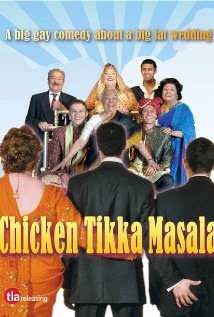 Another mystery set I love is Jacqueline Winspear's Maisie Dobbs series. The books are definitely not as campy or comedic as some of my other favorite series - in fact, they're not at all. They've slowly moved from focusing on the horrible legacies of the Great War to the rise of fascism in Europe. In some ways, private investigator Maisie's life personifies life between the world wars: hidden traumas and personal loss linger, and happiness and healing come slowly but unfortunately under the shadow of a very possible future war.
Another mystery set I love is Jacqueline Winspear's Maisie Dobbs series. The books are definitely not as campy or comedic as some of my other favorite series - in fact, they're not at all. They've slowly moved from focusing on the horrible legacies of the Great War to the rise of fascism in Europe. In some ways, private investigator Maisie's life personifies life between the world wars: hidden traumas and personal loss linger, and happiness and healing come slowly but unfortunately under the shadow of a very possible future war.In the most recent book, psychologist-detective Maisie investigates the murders of two young Indian women in London. At the end of the book, after solving the murders and sensing that the map of the world will be very different within a decade, Maisie temporarily closes her private investigation business and leaves for India (and anywhere else the winds may take her).
Winspear drops hints that Maisie may end up working for intelligence services leading up to the second World War. But I shall have to wait, as I seem to have to do with so many good mystery series, for the next installment to be written. Le sigh.
I finally gave in to Netflix's "suggested" list of films. Not sure why Netflix suggested Chicken Tikka Masala - I'm guessing it's some combination of my ratings of Shah Rukh Khan, Hrithik Roshan, Bend It Like Beckham, and half a dozen other indy films about gay or lesbian second generation immigrants. But I really liked both the premise and the specifics of the (highly improbable) plot: a guy's very traditional Hindu family misunderstand a phone conversation and think he agrees to a hastily-arranged marriage to a good Indian girl, not realizing that his "best friend" is really his lover.
The delivery was a little uneven: I suspect the film was very low-budget, and the camera quality kind of shows it. Some of the dialogue is stilted, and some of the acting not quite convincing. Quite a few of the characters are sloppily stereotypical: the fat English boozehound, the Jamaican alcoholic, the eagerly horny Indian guest.
Overall, I liked it. It was made in the early-ish 2000s, during the "multi-culti" independent film craze, which produced a lot of films with similar predictable storylines about second generation Americans or Brits navigating the nuances of identity (immigrant, nationality, gayness, changing gender roles). Though I watched a lot of these movies in my own identity-navigating phases, I honestly can't get tired of them, even if have to be in the right mood to watch one. In general, I think they should be celebrated for bringing to light the struggles of a lot of different and overlapping communities to participate in civic life.
And then, coincidentally, of the four episodes of MI-5 (Series 8) I watched recently, one of them had a character and plot that semi-justified my deep love of this highly anti-civil liberties, pro-War on Terrorism show. A 17-year-old Indian Muslim recruited to infiltrate a Hindu nationalist group saves the day (and survives, which is rare on this show); but at the end of the episode had some of the more insightful and heartbreaking surface-level lines of the entire 10 seasons: "You're always busting in on Asians in the middle of the night and dragging them away... All I wanted was a game of football. [But] you played me, just like [opposing spy] played [opposing agent]."

No comments:
Post a Comment